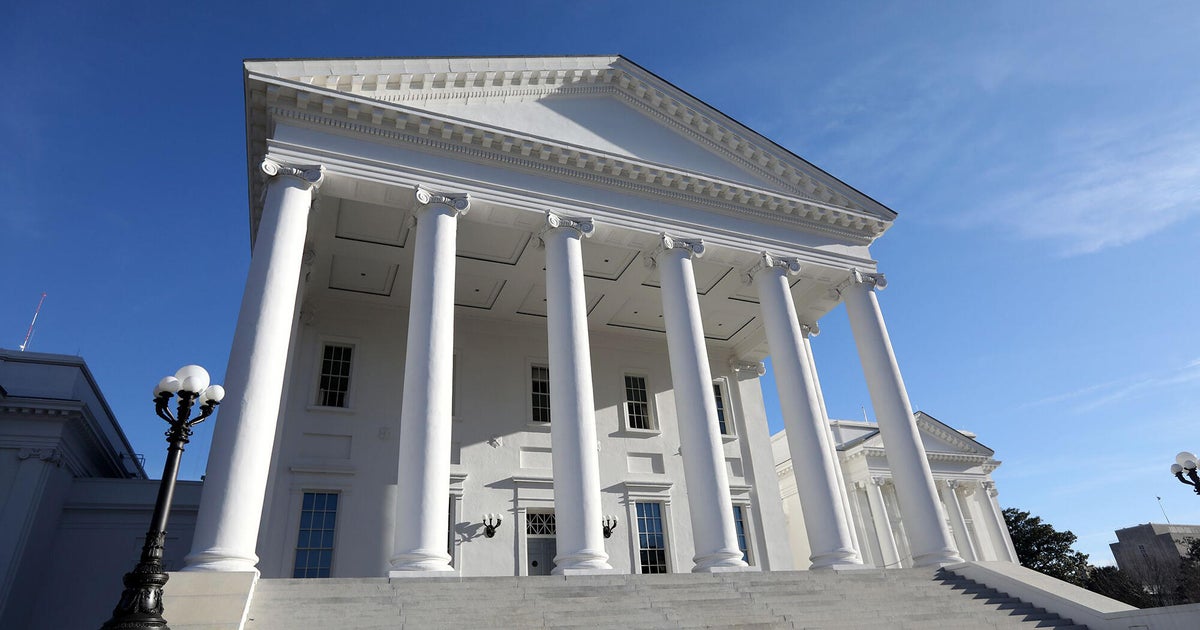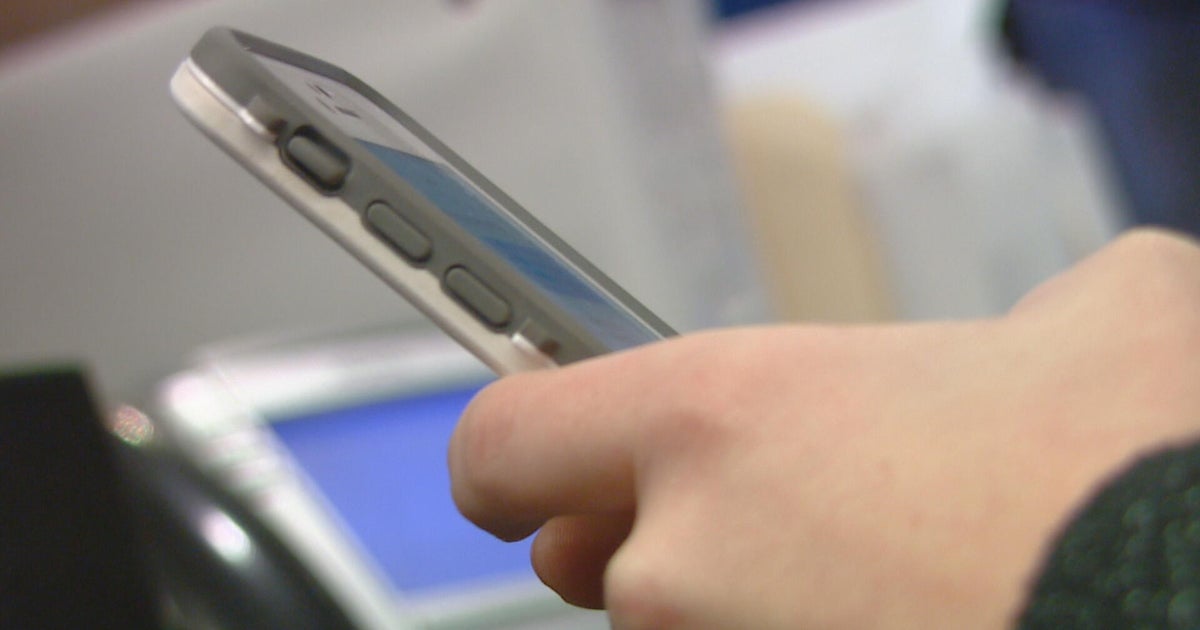Transcript: Sen. Chris Murphy of Connecticut on "Face the Nation," May 29, 2022
The following is a transcript of an interview with Sen. Chris Murphy tha aried on Sunday, May 29, 2022, on "Face the Nation." The full interview transcript can be found below.
PART 1:
MARGARET BRENNAN: The White House did decline our invitation for a member of the administration to come on the show today, saying they were leaving it up to Congress to act. We're joined now by Connecticut Senator Chris Murphy, a Democrat leading bipartisan negotiations over gun reforms in Congress, and he joins us from Hartford, Connecticut. Senator, welcome to the program. You've said in some powerful remarks this week that what you are looking to do is, to use your word, incremental change when it comes to gun safety. You are talking to Republicans about red flag laws, expanding background checks. Can you get ten Republicans to vote with you on either of those two measures?
SENATOR CHRIS MURPHY: I think we can. I think there is something dying inside the soul of this country when we refuse to act at a national level shooting after shooting. And I do think there's an opportunity right now to be able to pass something significant. I've seen more Republican interest in coming to the table and talking this time than at any other moment since Sandy Hook. It is true, you know, Republicans are not willing to support everything that I support, like banning assault weapons. But I really think that we could pass something that saves lives and breaks this logjam that we've had for 30 years, proving to Republicans that if you vote to tighten the nation's gun laws, the sky doesn't fall for you politically, in fact, you probably will get a lot of new additional supporters. So red flag laws are on the table. Background checks, expansion and on the table, as well as things like safe storage of guns. I think we can get something done, but we don't have a lot of time.
MARGARET BRENNAN: You don't. In those starting points in your talks with Republicans, are you also discussing some of what Governor Hutchinson just laid out as Republican priorities?
SEN. MURPHY: Listen, we're looking for an old school compromise in which we both tighten the nation's gun laws to make sure that only law abiding citizens get their hands on these very powerful weapons, but also invest in school security and mental health. I mean, it is true that we should have an all of the above strategy, and that's ultimately the path to 60 votes. So, you know, I'm willing to, you know, vote for some things that harden our schools, that make me a little uncomfortable, frankly. If Republicans are willing to vote to tighten up the nation's firearms laws in a way that they have been unwilling to do previously, that's the nature of a compromise. And I think right now, parents in this country and kids are desperate for us to do something. They are frightened, they're anxious. And we will just add to their anxiety if nothing happens again.
MARGARET BRENNAN: What about limits on high capacity magazines?
SEN. MURPHY: I think it's unlikely that we're going to be able to get 60 votes for that. Right now, that's a question that'll probably have to be left up to the voters. It's not out of the realm of possibility. We might take a vote on that in the Senate, but I don't see that having 60 votes. It's in the category of things I think would save lives. I've always said that I'm not sure that that shooter would have even walked into the school in Sandy Hook if he didn't have an assault rifle and those high capacity magazines. But I'm not sure that we have the votes right now for that.
MARGARET BRENNAN: Senator Murphy, stay with us, please. We're going to continue our conversation in a moment. We'll be right back.
PART2:
MARGARET BRENNAN: Welcome back to Face the Nation. We want to continue our conversation now with Senator Chris Murphy of Connecticut. Senator, I want to get into the specifics of some of what you are talking to your fellow senators about. But I want to start with something else. I grew up in the town next to Sandy Hook. I know you represented that district when you were a congressman at the time of the shooting. You spoke on the Senate floor quite passionately this week about not just the victims, but the survivors and the PTSD that these little children have just walking back into a classroom and remembering having to walk over bodies. Can you talk a little bit about what this does to a community, to the first responders and to the survivors?
SENATOR CHRIS MURPHY: Especially in these smaller towns. I just think it's important to understand how communities can't come back from this because data says everybody that's killed has 20 people that experience diagnosable trauma because of that murder. But in these schools, every single kid in Sandy Hook and you've already heard those gunshots, they all know the kids that died, many of them did in Sandy Hook have to walk over and around dead bodies. These are horrific, grisly stories. And of course, the same thing can be said of neighborhoods like the one that I live in in the south end of Hartford. These are neighborhoods where kids fear for their life every single day when they walk to and from school. Frankly, for many of these kids in urban neighborhoods, school is the safe place. Every single day is a trauma because they fear for their lives. So we need to understand, we are putting on top of kids today who already are living in an era of social media and pandemics, a level of trauma and fear that makes it very difficult for them to learn when they are in school. I've got two school age kids. You've got young kids. And the idea that they have to worry about where they're going to run in their school if a shooter walks in instead of worrying about how they're going to do on a test that day. It only happens in America. And when a shooting like this happens in a neighborhood or in a school, those communities never, ever recover. That's just the reality.
MARGARET BRENNAN: Thank you for that. On the specifics, how would your federal background check have stopped either of these two shooters in Buffalo and in Texas? Neither of them had criminal records. Neither of them had known mental health issues. New York already had a red flag law that didn't stop the shooter there in Buffalo. How would these proposals have stopped these cases?
SEN. MURPHY: So it was an- I just don't get into the trap of having to write a law for the last mass shooting that captured the nation's attention. What I know is that on the same day of the shooting in Uvalde, there were 100 plus other people in this country who died, and their mothers and fathers are grieving just as hard as the parents in Uvalde. So by tightening up the nation's background checks data system, back data shows us that we will save thousands of lives. And yes, a federal red flag law like the one we're talking about in these negotiations certainly could have helped in Texas. What we also know is that federal funding to help implement these laws, to make law enforcement know how to use them, can help in many states as well. So no one law is going to save everybody, but there's a lot of lives to be saved by the things that are on the table in these negotiations.
MARGARET BRENNAN: All right, Senator, thank you for your time today.



